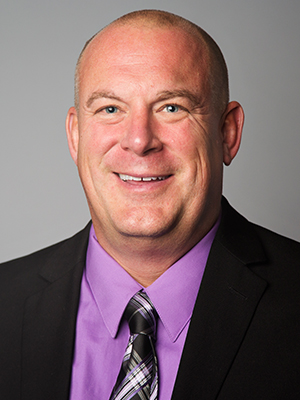Relieving the Symptoms and Stress of Huntington’s Disease – Palliative Care Can Help
By Andy Esch, MD
Living with Huntington’s disease can be extremely challenging. It’s a disease of the nervous system and brain, with symptoms that typically progress over time. These can include uncontrollable movements in your arms, legs, or body overall; painful muscle jerking; and difficulty swallowing or breathing. Huntington’s can also cause mental disturbances such as nervousness, mood swings, depression, and personality changes.
Huntington’s is often called the “family disease.” Knowing that your children have a 50/50 chance of inheriting the disease, without a way to prevent it, can be extremely distressing.
These challenges are difficult, but they can be managed so that you and your family can live life as well as possible. Palliative care can ease your burden and improve your quality of life.
Palliative care (pronounced pal-lee-uh-tiv) is specialized medical care for people living with a serious illness, like Huntington’s disease. This type of care is focused on relief from the symptoms and stress of the illness. The goal is to improve quality of life for both the patient and the family. Palliative care is provided by a specially trained team of doctors, nurses and other specialists who work together with a patient’s other doctors to provide an extra layer of support. It is appropriate at any age and at any stage in a serious illness, and it can be provided along with other medical treatment.
How Palliative Care Helps Those Living with Huntington’s Disease
Palliative care teams are expertly trained to manage the symptoms, side effects, and stresses of serious illnesses like Huntington’s disease. They can provide medication to relieve muscle spasms, calm nervousness, and manage shortness of breath. They can also help you adjust, understand complex medical information, and match your treatment choices to your needs and goals.
Palliative care specialists can support you and your family as you process what the diagnosis of Huntington’s disease means for you, and those you love. It is important to remember that the team is there for you and for your family.
How to Get Palliative Care
If you or a loved one are living with Huntington’s disease, ask your doctor for a referral to palliative care. Click here for tips on how to talk to your doctor about it. Palliative care is available in most hospitals and it is growing in outpatient clinics. In some areas, palliative care teams are available for home visits. You can also search this Provider Directory for palliative care resources in your area.
COVID-19 Safety Reminder
As someone with a serious illness, it’s important that you keep following health and safety guidelines related to COVID-19. The virus is still circulating and you may have more than one risk factor that could lead to severe complications if you catch this infection. The virus is spread through person-to-person contact, via respiratory droplets produced when an infected person coughs, sneezes or even simply talks. It’s not always clear if someone is infected, so the U.S. Centers for Disease Control advises that individuals in higher risk groups maintain health and safety practices. These include proper and frequent handwashing or use of hand sanitizer, wearing face coverings in public, and physical distancing with anyone outside of your immediate family circle. Visit the COVID-19 information pages at GetPalliativeCare.org to learn more.

Dr. Esch is acting vice president of education at the Center to Advance Palliative Care. A palliative care specialist, Dr. Esch focuses on improving quality of life for patients and their families as they face serious illness. Dr. Esch earned his medical degree from the University of Buffalo.
